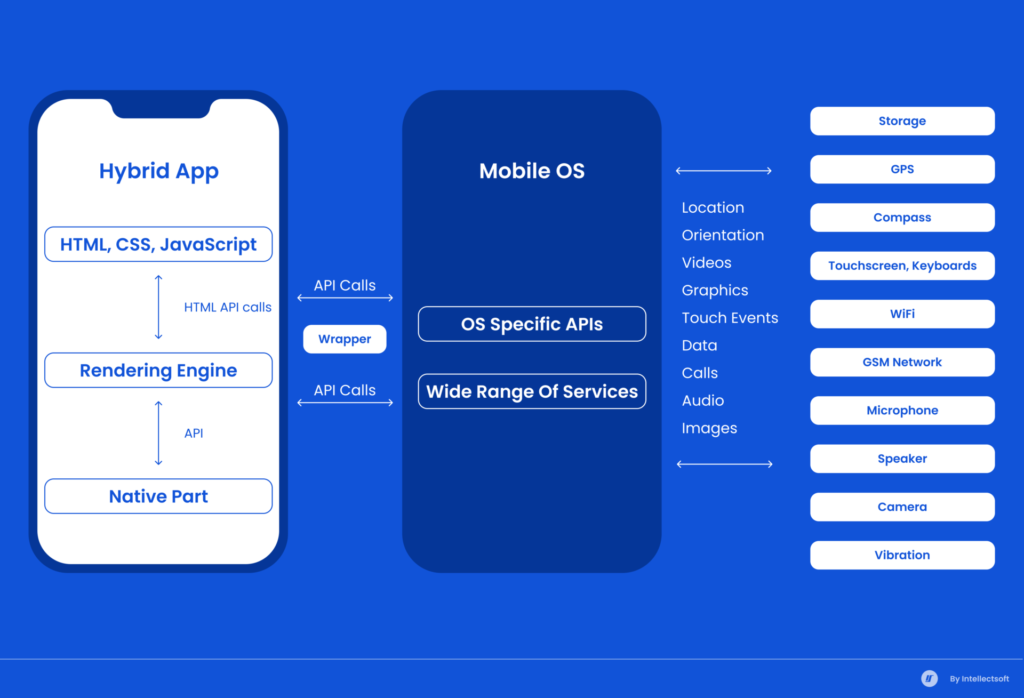Development: “10 Mobile Apps for Mobile App Development and Coding” explores the exciting world of mobile applications designed to enhance your coding skills and streamline the app development process. As technology continues to evolve, so does the need for effective tools that cater to both novice and expert developers. In this article, we dive into a selection of mobile apps that not only simplify coding but also foster innovation and creativity in the mobile development landscape.
From intuitive interfaces to advanced coding features, these apps offer a range of functionalities that can make the development journey more enjoyable and efficient. Whether you’re looking to learn coding basics or refine your existing skills, these mobile apps provide the perfect platform to expand your knowledge and enhance your productivity.
In today’s fast-paced world, the importance of effective communication cannot be overstated. Whether in professional settings or personal interactions, our ability to convey ideas clearly and concisely can significantly impact our relationships and opportunities. This article will explore the essential elements of effective communication, the barriers that can hinder it, and practical tips to enhance your communication skills.First and foremost, effective communication is about delivering your message in a way that is easily understood by the recipient.

This involves not only the words we choose but also our tone, body language, and the context in which we communicate. To achieve this, one must be mindful of the audience. Understanding their background, expectations, and emotional state can help tailor your message for better reception.One key aspect of communication is active listening. This means not just hearing the words being spoken but fully engaging with the speaker.
Active listening involves paying attention, nodding, and providing feedback to show that you are invested in the conversation. It is essential for building trust and rapport, as it demonstrates respect for the speaker’s thoughts and feelings. To practice active listening, try to minimize distractions, maintain eye contact, and avoid interrupting. Instead, wait for the speaker to finish before responding, and summarize or paraphrase their points to confirm your understanding.Another vital element of communication is clarity.
Ambiguity can lead to misunderstandings, so it is crucial to be as clear and straightforward as possible. This means choosing your words carefully and avoiding jargon or overly complex phrases that may confuse your audience. When delivering information, it can be helpful to structure your message logically, starting with a clear introduction, followed by supporting details, and concluding with a summary or call to action.
This framework allows your audience to follow your thoughts easily.Nonverbal communication also plays a significant role in how our messages are perceived. Our body language, facial expressions, and even the tone of our voice can convey much more than our words alone. For instance, crossing your arms may signal defensiveness, while leaning slightly forward can indicate interest and engagement. Being aware of your own nonverbal cues, as well as those of others, can give you valuable insights into the dynamics of the conversation.
It is essential to ensure that your nonverbal signals align with your verbal message to avoid confusion.Unfortunately, various barriers can impede effective communication. These can range from environmental factors, such as noise and distractions, to psychological barriers, such as anxiety or preconceived notions. To overcome these obstacles, it is crucial to create an environment conducive to open dialogue. This might mean choosing a quiet location for important discussions or being aware of your emotional state and that of your audience.
Additionally, being open-minded and willing to consider different perspectives can help break down barriers and foster more meaningful conversations.Moreover, the digital age has introduced new challenges to communication, particularly with the rise of emails, texts, and social media. While these platforms offer convenience, they can also lead to misinterpretation due to the lack of nonverbal cues. To enhance communication in a digital context, it is essential to be even more deliberate about your word choices and tone.
Using emojis or GIFs can help convey emotions that may be lost in plain text, but it is vital to consider the formality of the platform and the audience.One effective strategy for improving communication skills is to seek feedback. Asking trusted colleagues or friends for their thoughts on your communication style can provide valuable insights. Constructive criticism allows you to identify areas for improvement and adapt your approach accordingly.
Additionally, observing skilled communicators in action can serve as a learning opportunity. Pay attention to how they engage their audience, what language they use, and how they navigate challenging conversations.Practicing empathy is another powerful tool in effective communication. Understanding and acknowledging the feelings and perspectives of others can help build stronger connections. When we approach conversations with empathy, we are more likely to foster a supportive and collaborative atmosphere.
This is particularly important in conflict resolution, where understanding the other person’s viewpoint can pave the way for finding common ground.Furthermore, storytelling can be an incredibly effective communication technique. People are naturally drawn to narratives, as they help make complex ideas more relatable and memorable. By incorporating storytelling into your communication, you can engage your audience on a deeper level and make your message resonate more profoundly.
Whether sharing personal experiences or using anecdotes to illustrate a point, stories can enhance the impact of your communication.To summarize, effective communication is a multifaceted skill that encompasses clarity, active listening, nonverbal cues, and empathy, among other elements. By being mindful of your audience, seeking feedback, and practicing your skills, you can become a more effective communicator in both personal and professional contexts.
Remember, communication is not just about speaking; it’s about connecting with others and fostering understanding.In conclusion, as we navigate an increasingly complex world, honing our communication skills is more critical than ever. By embracing the principles Artikeld in this article, we can enhance our ability to connect, collaborate, and thrive in all aspects of our lives. So, take a moment to reflect on your communication style, seek opportunities for improvement, and watch as your relationships and opportunities flourish.


